Herpes
Icosahedral, enveloped capsid virus with linear double-stranded DNA (dsDNA). Is part of the Herpesviridae family..
clothed, double lines, blue color
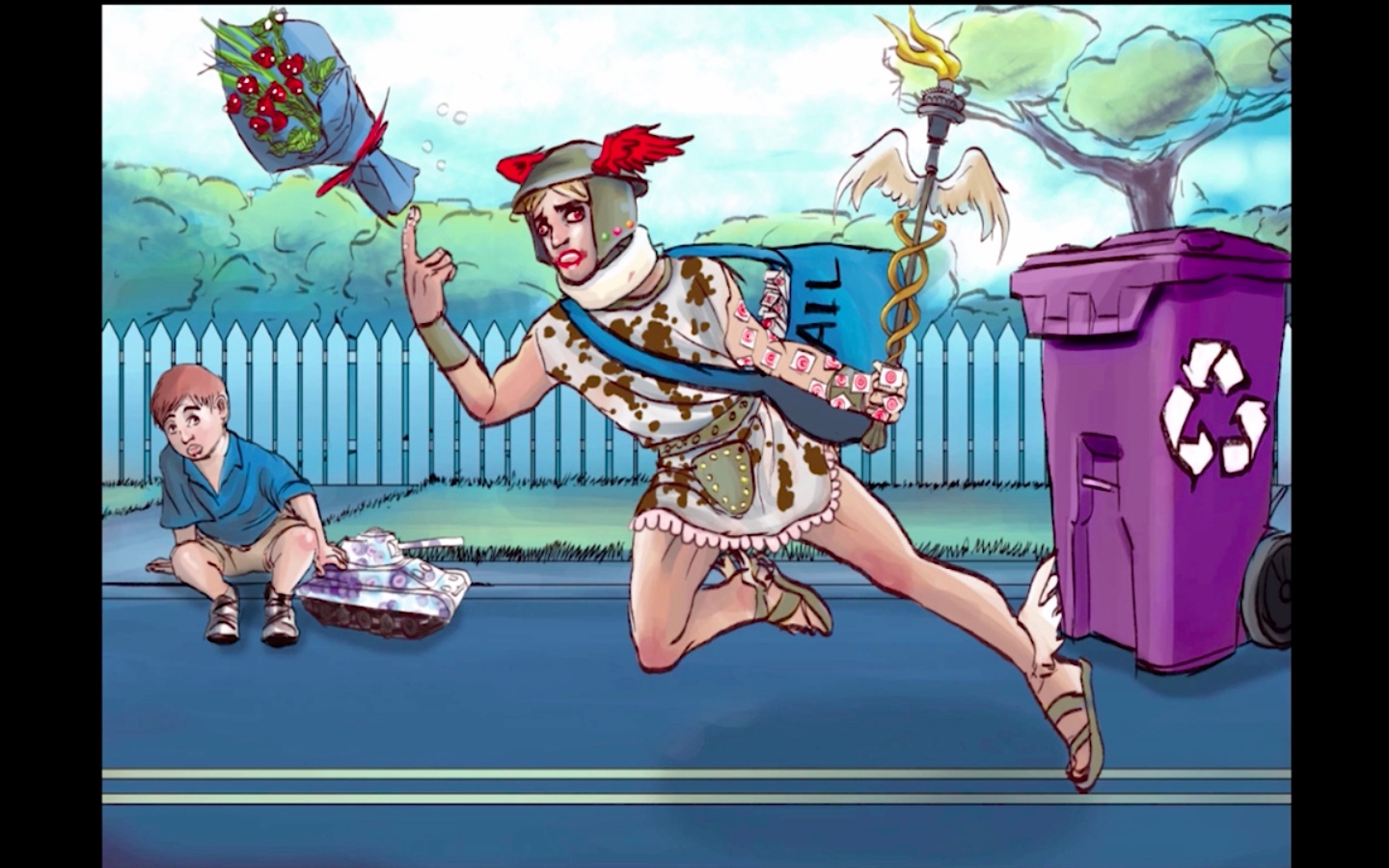
Includes two types, HSV-1 and HSV-2. HSV-1 typically infects above the waist and HSV-2 typically infects below the waist. Infections from HSV-1 and HSV-2 can each be seen both above and below the waist, possibly due to oral sex practices..
Associated with erythema multiforme, which appears as a "target lesion" with a pink-red ring around a pale center. target stamps from hands to trunk..
appear 1-2 weeks after infection

HSV-1
is transmitted through respiratory secretions and saliva and is typically involved with infections above the waist..

When the virus invades the mucous membranes, the infection is typically asymptomatic but can cause vesicular lesions that can ulcerate and cause..
- Gingivostomatitis in the mouth is the most common.
- Keratoconjunctivities on the cornea, typically presenting as a branching “dendritic ulcer.”
- Esophagitis with ulcers that appear well-circumscribed and have a “volcano-like” appearance. Often seen in immunocompromised individuals (ie. organ and bone marrow transplant recipients). CMV: linear
- red lips, red eyes,

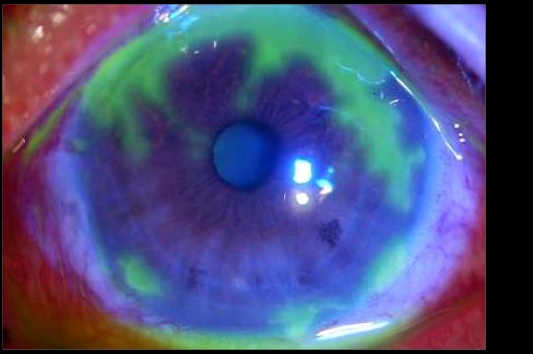
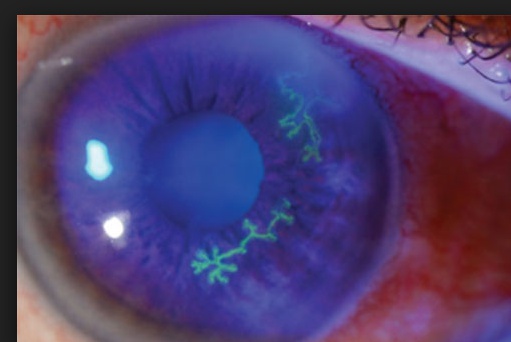
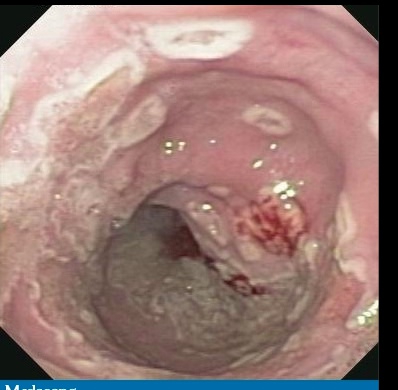


.
Primary infection with HSV-1 results in herpetic gingivostomatitis. Peak age for primary infection is age 6 months to 5 years. Prodromal symptoms (eg, fever, malaise, chills) begin approximately 1 week after contact with an infected person (who is generally asymptomatic). Painful vesicles appear, extensively covering the lips and gingiva, and may include the palate, tongue, or oropharynx. The vesicles organize into extensive ulcers and resolve within 1-2 weeks. The pain of gingivostomatitis often results indehydration, the most common reason for hospitalization.
Primary infection resolves after 2-3 weeks and can enter local sensory nerve endings and through axonal transport the virus can become latent in trigeminal ganglion or other sensory ganglia. Stress can cause viral reactivation and can results in herpetic labialis (cold sores around the mouth), gingivostomatitis, or keratoconjunctivitis..
3 gems on his helmet

Can spread via cranial nerves to the brain and cause focal necrotic lesion in the temporal lobe, causing inflammation and encephalitis. Most common cause of sporadic encephalitis, and can present with
- Altered mental status
- Seizures
- Aphasia (loss of ability to understand/express speech)..
Number 1 cause of sporadic encephalitis in U.S.
hemet: necrosis
wings: hemorrhage
wings: temporal lobe encephalitis

Herpetic whitlow is a painful hand vesicle that can occur in healthcare workers who come in contact with herpetic lesions (ie. dental procedure)..

HSV-2
Through sexual contact and is typically involved with infections below the waist..
When the virus invades the mucous membranes, the infection is typically asymptomatic but can cause vesicular lesions that can cause genital herpes and painful inguinal lymphadenopathy..
Incubation: 3-7 days
Dew drop on rose appearance:
vesicles on red base
inguinal knots around skirt

Thin roof lesions. Histology shows ground glass, multinucleated viral inclusions..
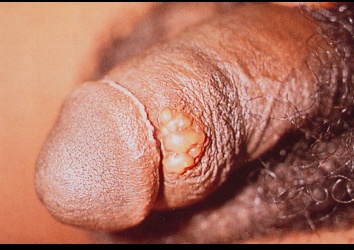

Primary infection resolves after 2-3 weeks and can enter local sensory nerve endings and through axonal transport the virus can become latent in the lumbosacral ganglia or other sensory ganglia..
sacral plate

Congenital Herpes
Vertical transmission can occur through the placenta (intrauterine HSV) or during delivery (neonatal HSV). Neonatal HSV can be classified into three main categories:
-
Skin, eye, and mouth
-
CNS disease
-
Disseminated disease..
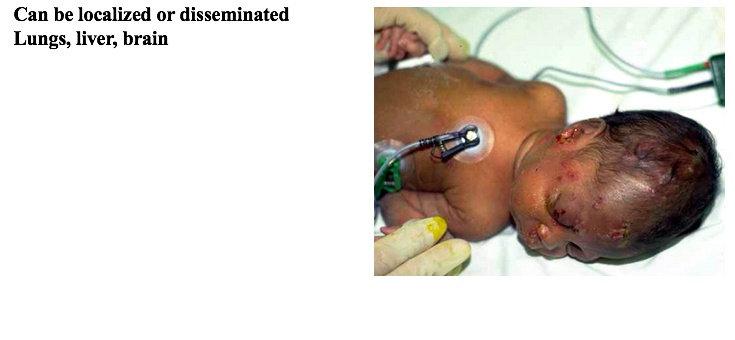
Torch infections
Congenital infections..
- Toxoplasma
- Rubella
- CMV
- Herpes simplex, HIV
- Syphilis
Diagnosis includes:
-
PCR, especially in early detection of encephalitis
-
Multinucleate giant cells on Tzanck smear of skin lesions
-
Eosinophilic Cowdry intranuclear inclusion bodies..
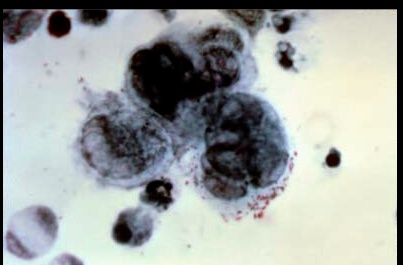
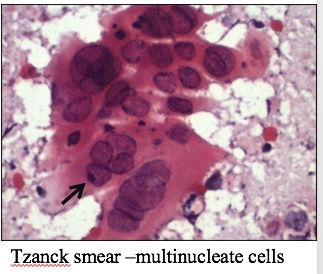
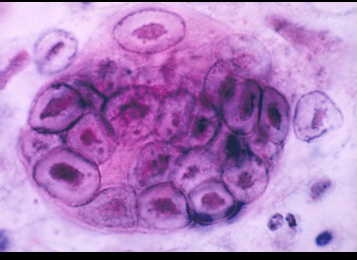
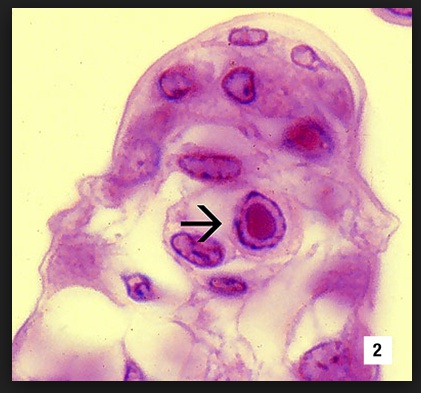 cowdry: cow shirt
cowdry: cow shirt

Treatment includes acyclovir for only active infections, since HSV thymidine kinase and DNA polymerase are not made during latency..

Acyclovir-resistant HSV can be treated with foscarnet because it bypasses activation by deficient or mutated thymidine kinase.